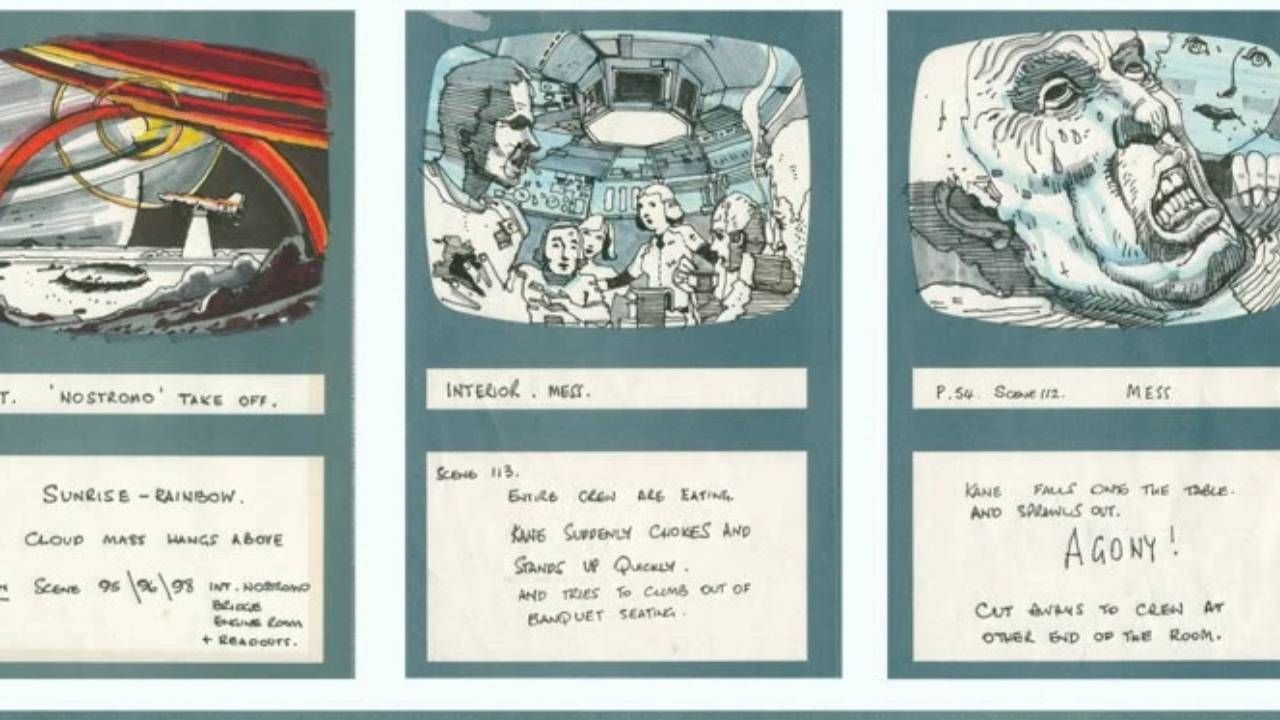If you’ve never seen a Ridley Scott film, where do you start? Here is my advice for discovering the world of the director of “Blade Runner” and “Gladiator”.
If you have seen Napoleon but it was your first Ridley Scott film and you want to go further in his rich career, here is the feature film that you absolutely must see in my opinion, and it is Alien, the Eighth Passenger, released in 1979.
Why not another historical film like the extended version of Kingdom of Heaven or Gladiator? Because with Alien, you will have a glimpse of what constitutes another significant part of his filmography: his love of science fiction. We follow the crew of the Nostromo who, following a visit to a strange planet, find themselves dealing with the presence of a formidable creature on board.
When I saw Alien for the first time, I must have been 14 or 15 years old, and I was especially struck by the contrast between the fact that the creature is shown very little and the fear I felt, without really understand then that one did not go without the other. It was when I understood it that I realized that the film was brilliant.
Twentieth Century Fox
It is perfect for entering the world of Ridley Scott because it is perfect in its genre, subtly constructed and even… inspiring. Three lessons that the filmmaker gave us very early in his career and which would shine through his entire filmography.
Lesson #3 – Perfect in its genre(s)
Alien is perfect in its genres because it delivers to the science fiction fan what they came for, while distilling the tension that the thrill-seeking spectator came to look for. This tension constitutes the first level of reading of the film, the one which underlines to what extent the crew is in panic to shelter such a formidable creature, which knows perfectly well how to hide in the depths of the ship.

Twentieth Century Fox
Each time he tackles a new genre, Ridley Scott will create truly solid films, even classics of the genre. It will be The Duellists or The Last Duel for the historical film, Gladiator for the peplum, Thelma & Louise in the dramatic thriller, 1492: Christopher Columbus for the adventure film, The Fall of the Black Falcon for the war film or Lies of the State for the political thriller.
Lesson #2 – Subtly Constructed
To get final studio approval on the project, Ridley Scott storyboarded a good portion of the sequences, and it was these visuals that convinced Fox that he was the right person for the project. Scott is a conscientious preparer, storyboarding his films from the oldest (The Duelists) to the most recent (Alone on Mars, Alien: Covenant). This gives him each time a clear vision of what he wants, both in terms of staging and in terms of decor. Here are examples of Alien :

Boards.com
In addition to this preparation, Scott wants to put the psychology of his characters at the center of the story and for this, he often shoots a version of the film that the studio rejects because it is too long (Napoleon, Blade Runner, Kingdom of Heaven), but he takes the time to establish its heroes and show all their complexity and even their paradoxes (The Last Duel, The Associates).
Looking back on the construction of Alien, what stood out to me was the way the film opens. After the presentation of the spaceship seen from the outside to show us its isolation, the camera goes inside and shows us the main places where a good part of the action will take place. The calm (before the storm) reigns. It’s only then that the characters slowly wake up from their hyper-sleep and we discover them, and I remember being quite taken aback by the waking up scene.
In just a few exchanges between these individuals, I remember being able to classify them into archetypes: the greedy, the cerebral, the commanding, etc. Enough to introduce us to seven people in record time and give us the impression of knowing them. A demonstration of writing and directing that amazed me, of which you can find variations at the opening of other Scott films like Legend (set scene followed by the presentation of the villain), Blade Runner (same thing) or Alone on Mars (decor then presentation of the team).
Lesson #1 – An inspiring film
Alien is also the first time that Ridley Scott highlights a heroine, here played by Sigourney Weaver. Ellen Ripley served as a model for many little boys and girls through her courage, her constitution and her intelligence. By seeking to ensure that the Weyland-Yutani company never gets its hands on an Alien specimen, it represents a last defense against the recovery of a threat by a company only interested in money and weapons. A modern heroine whose ideals have resonated and still resonate with several generations.
If you catch up on several of Scott’s films, you will find many very well written heroines such as those of Thelma and Louise, Jordan O’Neill from Equal Arms or Marguerite de Carrouges in The Last Duel. With Alien, Ripley quickly becomes a pop culture icon, as will Maximus, Frank Lucas and Deckard, other characters iconized by Scott’s camera.

Twentieth Century Fox
Ellen Ripley
Finally, I admire Alien for its ability to feed the imagination: thinking about what we can’t see, fearing what could come out at any moment, jumping at the sound of a ship while projecting that it could be worse.
This lesson is also the one that Scott indirectly addresses to all budding filmmakers: you don’t have money for your film? Take a simple concept and rely on the viewer’s feeling rather than the demonstration. Limit the scale of what we say to better control it. And to scare, suggest rather than show.
